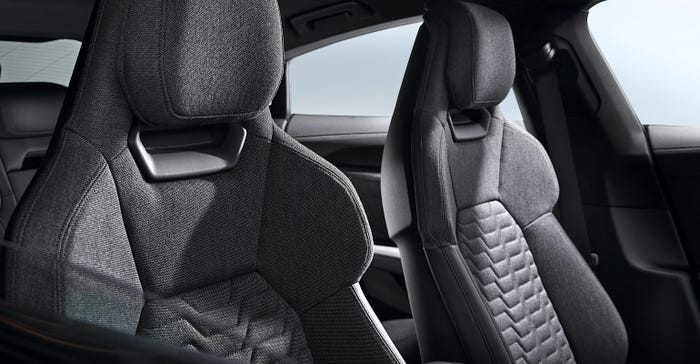Audi customers say they’re ready to switch away from leather upholstery in favor of recycled materials like the reused PET water bottles in the A3’s seat fabric.
October 11, 2021

The soft fabric in these Audi A3 seats is made of polyester from recycled PET water bottles.Audi
As a synthetic fiber, polyester is proving particularly suitable for reuse in applications where the recycled material is indistinguishable from material made using virgin petroleum products. The seat fabric in the Audi A3 is an example where material recovered from polyethylene terephthalate (PET) plastic bottles is used to make the car’s upholstery.
PET is is a general-purpose thermoplastic polymer that belongs to the polyester family of polymers. These are good recycling candidates because polyester resins are known for their mechanical, thermal, chemical resistance as well as dimensional stability.
TWD Fibres GmbH, one of Audi’s partners in the process of creating automotive seats from recycled water bottles, lists five reasons to recycle PET:
Virgin polyester is a limited commodity
Recycled polyester saves CO2
TWD Fibres researches new applications
Recycled polyester equals virgin in quality
Recycling avoids waste and pollution
Audi has provided us a look at the process of going from bottles to seats from start to finish, so click through our photo gallery to see how it happens.
Can you guess how many bottles go into the creation of a pair of car seats? Check out Slide 10 to see how close you are to the real deal.
About the Author(s)
You May Also Like


